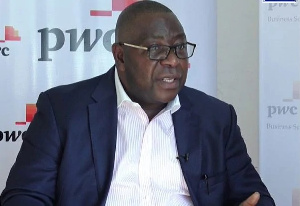Delays in payment of outstanding salaries and severance packages to former workers of defunct microfinance, savings and loans and finance house and microcredit companies is due to unavailability and access to employee data for verification and computation of exit packages.
This is according to a document sighted by the Ghanaian Times on Monday, July 20, 2020.
The document, however, indicated that “the Receiver of the defunct institutions, Eric Nana Nipah, has concluded negotiations with 5,637 former workers who are due for payment of their outstanding salaries and severance packages”.
They include 2,036 former employees of microfinance institutions, 3,547 from savings and loans companies and 54 from microcredit firms.
Following the Bank of Ghana’s (BOG) ?decision to make available funds to pre-finance ?the full settlement of employees related claims which otherwise rank as unsecured claims in the liquidation of the defunct institutions, the payment would be effected by the end of this month, the document stated.
he ex-workers are in line to receive payment in excess of GH?151 million which includes full outstanding salaries totaling GH?7.5 million, ? while compensation stands at GH?144 million.
The agreed? compensation package, the document said would include three months basic salary per each year of service ?worked?, cash payment for accrued outstanding leave days for 2019, 30 per cent discount on all outstanding loans, payment of medical bills as at receivership date and among others.
“Although 347 microfinance companies were resolved and handed over to the receiver by the BOG, former staff of only 177 companies have been engaged in the negotiation process,” the document said.
It said the same applied to savings and loans companies and microcredit institutions which have 21 out of 23 and 11 out of 39 respectively involved in the negotiations.
According to the document, those companies which were not engaged had ceased operations prior to the receivership and there were no available employee records to enable processing of exit package.
“In all, 155 microfinance companies, two savings and loans firms and 28 microcredit institutions were not operational before they were resolved by the BOG,” it said.
However, the document explained that currently the receiver was engaged in negotiations and computations for 15 microfinance companies.
It would be recalled that earlier this month, former staff of the defunct 347 microfinance companies asked the receiver to expedite payment of their exit packages.
Led by the Industrial and Commercial Workers Union (ICU), the former workers demanded a definite date for which all packages would be settled following a statement by the receiver indicating that payment would be made only after the conclusion of the validation process.
“Today is July 13 and none of our members affected or their representatives have either received a notification via SMS or been called that payment will start today or tomorrow. The receiver in its statement indicated that some validation will continue and this means that processes to pay the affected employees are not concluded,” General Secretary of the ICU, Solomon Kotei, said at a press conference in Accra.
In 2019, the BOG revoked the licences of 409 financial institutions comprising 347 microfinance, 23? savings and loans as well finance houses and 39 ?microcredit companies, for violating various regulations guiding their operations.
According to the BOG, the action was necessary to protect the investments of about 4.6 million depositors whose monies could have been lost completely.
Source: Ghanaian Times
 Home Of Ghana News Ghana News, Entertainment And More
Home Of Ghana News Ghana News, Entertainment And More





